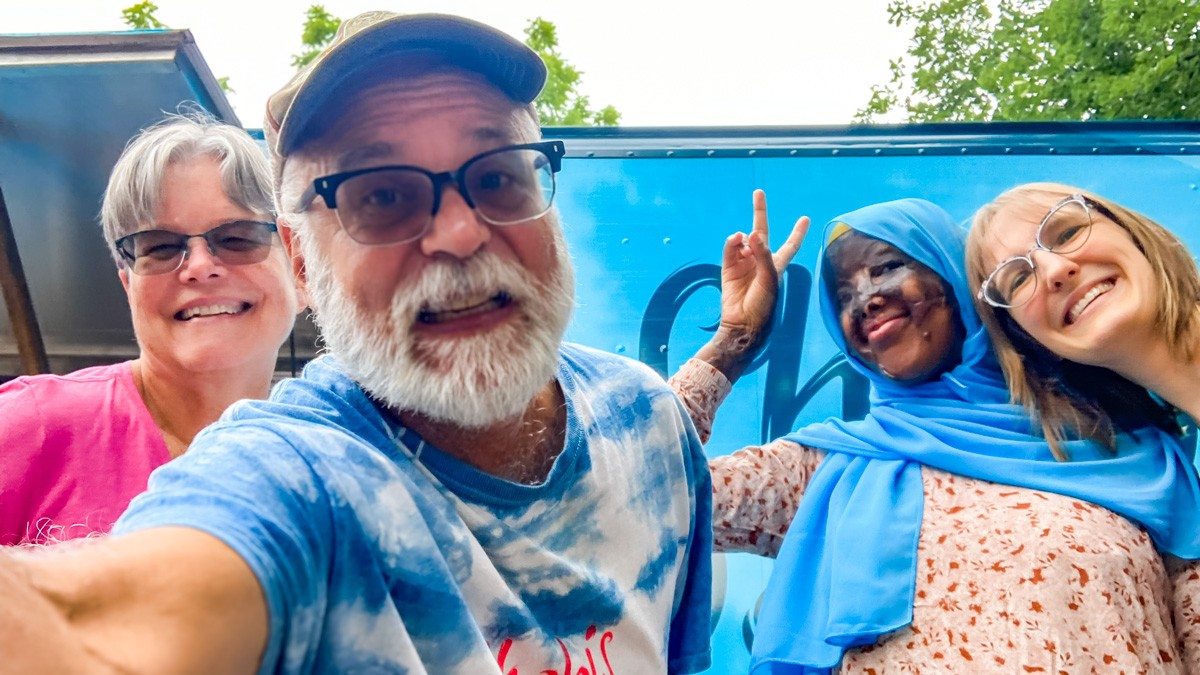Cross Cultural Challenges
Feb 3, 2023
- Laura Longino with Rachael Lofgren

At 11:00 on a Friday morning, I went to Amina's house to teach English. She is a Somali who was in a refugee camp in eastern Ethiopia before relocating to the USA.
I was irritated.
She had recently gotten into the habit of texting me that she had an appointment the morning of her lesson while I was on the way to her house. When I walked in and saw her and her husband eating breakfast, I was irritated because it was apparent Amina didn't have an appointment.
"Sorry, Nuura," she said without any air of apology. " I forgot to text you. I have an appointment."
It then dawned on me that this was the only English she knew to tell me not to come that day because her daughter had taught her what to say from an automated text message option. Misunderstandings like this are common when working across language barriers.
For some unknown reason, Amina decided she didn't have an appointment, after all, so we went ahead with the lesson.
I wanted a thank you.
She wasn't in the mood to learn, though. I stopped the class after 30 minutes, feeling irritated by the wasted time. When I got up to leave, Amina went to the kitchen to start cooking lunch instead of seeing me off at the door. She shouted, "thank you" from the kitchen, but I lingered, wanting her to make eye contact. Although I knew it was not part of Somali culture to say thank you, I still wanted a more heartfelt acknowledgement of my efforts to help.
Pushed out the door
I didn't get my entitled heartfelt thanks. Instead, Amina's 3-year-old looked me in the eye and said a forceful "thank you!" as she pushed me out the door. I drove home feeling devalued and unappreciated for my effort.
Why should we thank you?
Then I remembered something I had recently read in the book "Pillars" by my friend Rachel Pieh-Jones when she encountered the same cultural difference. She asked her Somali friend Amaal why they never thanked her for the gifts she brought them when she traveled between the US and Djibouti.
"Why should we thank you?" Amaal asked.
"I spent money, time, and thought on you!" Rachel protested.
"I don't know why you think you did anything for us," Amaal said. "Who provided the money? Who gave you your mind to think of us with? Who directed you to the store and to the exact thing we wanted? Who developed this friendship between us in the first place? I don't know why you think gift-giving has anything to do with you. If we say thank you to anyone, it is to God. People don't thank you because they are thankful to God: for you, for your friendship, and for the gift. It isn't about you; it's about God." (Pillars Pg. 160)
While this may feel foreign and harsh to our ears, it was simply her honest worldview.
It isn't about us. It's about God.
I felt humbled as I pondered Rachel's story and applied it to mine. How often did I crave thanks when I should thank God or let others thank God?
-Laura Longino, Northern Colorado
_____
One of the distinctives about serving forcibly displaced people is that we work across a broad spectrum of cultures and worldviews, many of which are very different than our own. It can be confusing and painful at times. We often need to step back and try to understand the world from their vantage point of our uprooted friends. We're always on a learning curve.
CLICK HERE to learn more about our work in Northern Colorado.
Other Featured Posts

Reciprocity: experiencing God's blessings together
Feb 19, 2026

An empty seat
Feb 4, 2026

Statement Concerning ICE in Minnesota
Jan 23, 2026

Harvest Season at Hope Community
Jan 15, 2026

Happy New Year!
Dec 31, 2025

Merry Christmas from IAFR
Dec 23, 2025

Love Made Me Forget My Scars
Dec 17, 2025

Hope Has a Name
Dec 10, 2025


